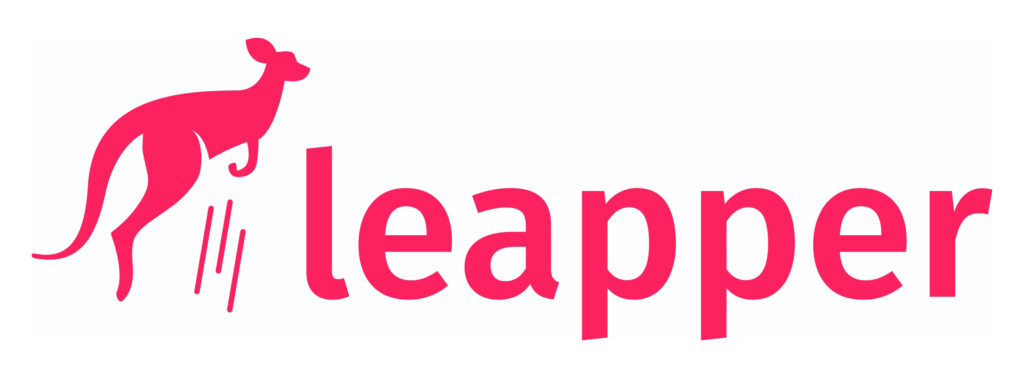Empowering Growth: Tailored Leadership for Emerging Enterprises
For small and medium-sized businesses, building an effective human resources (HR) function can be challenging with limited budgets and personnel bandwidth. Yet as organizations grow, there is an increasing need for HR leadership and infrastructure to support essential workforce needs around talent management, policies, compensation, compliance and more.
This is where a fractional HR executive can make a strategic difference. A fractional HR leader provides part-time, interim or project-based HR consulting and execution support tailored to elevating an organization’s people operations.
In this comprehensive guide, we will explore fractional HR solutions for SMBs including:
- What is fractional HR and its key benefits
- When to consider adding a fractional HR Executive
- How fractional HR leaders support small business goals
- Details on Leapper’s fractional HR process
- Why fractional HR offers experience and proven success
- Reasons to choose Leapper for fractional HR
- FAQs on fractional vs traditional HR
For small and medium-sized businesses seeking to optimize their approach to HR management without the expense of full-time staff, fractional HR allows customizable access to high-caliber expertise. Read on to understand how the right HR partner can drive organizational success.
What is Fractional HR?
A fractional HR model provides businesses with expertise and support on human resources management delivered in a shared, part-time capacity.
Definition of Fractional HR
Fractional HR involves partnering with an experienced HR consultant or leader who works for your organization on a part-time, interim, or project-specific basis. They operate as the functional equivalent of a Chief Human Resources Officer (CHRO) or HR director but in a fractional, time-shared arrangement.
Rather than being a full-time employee focused on just one company, a fractional HR executive divides their hours across multiple clients. This allows them to deliver a strategic HR perspective tailored to each organization in a highly flexible, customizable and cost-efficient model.
Benefits of Using Fractional HR
Key advantages fractional HR offers over hiring full-time staff or fully outsourcing HR include:
- Cost-effective access to high-caliber HR expertise
- Customizable level of support to meet current business needs
- Scalable capacity adapting as requirements evolve
- Maintains focus on core business goals vs HR administration
- Unbiased, independent guidance grounded in data
For most small companies, fractional HR delivers the specialized HR leadership they require at a fraction of the cost of a full-time resource. This empowers forward progress on crucial talent, culture and workforce optimization initiatives.
When to Consider Adding a Fractional HR Executive
There are a few pivotal situations where bringing on fractional HR leadership can be invaluable for small and medium-sized businesses seeking to professionalize their people operations:
Limited HR Budget
The turning point often comes when a business reaches 50-100 employees and HR tasks like recruitment, compensation planning, policy setting and compliance management start to swell beyond what current generalist office managers or individual managers can handle effectively.
Yet at the same time, these growing mid-sized businesses lack the dedicated HR personnel and recruitment and salary budget that hiring a full-time Chief Human Resources Officer (CHRO) would require. This leaves a gap where essential HR strategic and administrative needs go unmet.
Fractional HR consulting offers the ideal solution – customized, cost-effective access to high-caliber HR expertise suited to the organization’s size and budget flexibility. Fractional HR executives become strategic partners in pragmatically elevating talent and workforce initiatives.
Lack of HR Expertise In-House
While internal generalists may have managed basic HR administration, they often lack true depth in the HR competencies and leadership skills to craft integrated workforce strategies and talent programs that enable sustainable business growth.
As organizations scale, the need intensifies for HR insight grounded in data-driven frameworks around:
- Strategic planning to secure current and future talent needs aligned with corporate goals
- Metrics-based approaches to improving employee lifecycle experience and engagement
- Technology and process optimization for speed, efficiency and scale
- Compliance best practices and risk mitigation
- Compensation benchmarking and planning
- Change management during growth phases
Augmenting an existing team with fractional HR executive experience fills this oversight gap in a pragmatic way. An expert HR leader trained in these disciplines can optimize human capital strategy and operations without bloating overhead with a full department.
How Fractional HR Executives Can Support Small Businesses
Fractional HR executives deliver immense value to small businesses across a spectrum of strategic and operational areas that empower improved organizational success.
Talent Management
A specialized fractional HR leader brings experience in best practices around workforce planning, talent acquisition, onboarding, development, performance enablement, engagement initiatives and succession mapping.
Key talent management benefits include:
- Optimized sourcing and recruitment channels to secure top talent swiftly
- Data-based strategies for forecasting critical hiring needs
- Competency modeling, skills gap analysis and role design expertise
- Enhanced new hire onboarding for speedier productivity
- Structured training programs, mentorship initiatives and career path visibility boosting retention
Organizational Design
The right HR partner serves as an architect assessing and aligning how teams, roles, workflows, technology and supporting infrastructure should evolve amid growth and shift in strategic objectives.
- Org chart, reporting structure and cross-functional relationship mapping
- Optimized responsibilities across roles and departments
- Reimagination of structure, processes and systems to enable scale
Data-Driven Support
HR decisions grounded in analytics and employee feedback yield superior outcomes. Fractional HR experience brings the discipline of continuous measurement and improvement driving workforce optimization.
- Set KPIs tracking recruitment metrics, turnover, absenteeism, engagement survey trends
- Apply findings from metrics to strengthen programs and processes
- Maintaining pace of evolution through regular assessment and change implementation
Unbiased Insight
External fractional HR professionals offer an impartial perspective to company leadership and people managers that weighs organizational opportunities and team member experience equally.
Fractional HRs serve as:
- Strategic thought partners – Align talent strategy with business goals
- Team advocates – Champion strengths-based role design, equitable policy, and positive employee experiences
They act as neutral but informed mediators that foster trust between leadership and staff amid change by:
- Grounding guidance in data-driven frameworks proven to balance sustainable growth with engaged talent retention
- Providing rationale for decisions that link business objectives with requisite talent plans
Cost-Effective Leadership
The fractional HR model provides seasoned strategic leadership minus the fixed overhead cost of a full-time CHRO. Key economic benefits include:
- Avoiding mismatched capacity and cost overruns from static full-time roles
- Customizable guidance scales up and down to match evolving project needs
- Pay only for the HR oversight required during a given business cycle
- Resources stay focused on targeted talent impact vs getting mired in administration
This empowers small businesses to pragmatically elevate their people operations during crucial growth phases or when undertaking key initiatives like performance management optimization.
The Fractional HR Process: How it Works
Once the determination is made to augment capabilities with fractional HR talent, what does engaging the right leader and integrating them effectively entail? Key phases include:
Finding the Right Fractional HR Executive
The starting point is clearly defining the business context, objectives, and current opportunities and gaps on the talent management front. This frames the parameters for the ideal fractional HR profile.
Criteria for the fractional search process include assessing candidates:
- Industry experience corresponding to the organization’s sector
- Competencies in the exact disciplines needed from compliance oversight to recruitment operations, performance enablement, etc.
- Cultural alignment – collaborative work style fitting the environment
- Bandwidth scope – hours per week/month matching project demands
- Communication skills and executive presence to interface with stakeholders
Checking references thoroughly validates the background, capabilities and cultural suitability of finalist fractional HR leaders being considered. This diligence facilitates the selection of the optimal talent partner for the organization.
Onboarding and Integration
Once the fractional HR executive partner is selected, they undertake deep discovery across all facets of company people operations including:
- Growth plans, funding status, market strategy and resulting current and future talent needs
- Organizational chart, reporting structures, roles, workflows and decision-making dynamics
- Policy guidelines for compensation, performance management, codes of conduct
- Data sources, analytics tracking and pain points related to HR processes
Immersing in this degree of context enables the fractional HR consultant to rapidly chart targeted initiatives grounded in business priorities designed to make a positive impact from the start. Early wins help establish ROI and value.
Communication and Collaboration
Open, consistent communication and collaboration channels are vital for effective fractional HR engagements over time between the consultant, leadership team, managers and staff. Core elements fostering this include:
Cadence – Set regular meetings, touch bases and reviews matched to the phase, priority and speed of key talent initiatives
Access – Ensure the fractional HR leader has direct, independent access to executives setting company direction as well as frontline managers they must support.
Technology – Link the fractional resource into centralized platforms and systems of record for company data, documentation and communications to facilitate seamless integration.
When thoughtfully employed, these bridges optimize fractional HR contribution and minimize barriers. Outcomes improve as a result.
Experience and Success: Why Choose Fractional HR
Fractional HR models have become increasingly popular because they deliver results grounded in the caliber of tenured professionals available and the prudent economics of the approach.
Proven Track Record
Established fractional HR consultancies source professionals from within experienced CHRO, VP HR and executive HR director talent pools possessing 10-20 years optimizing people strategy at reputable enterprises.
These seasoned practitioners have steered HR leadership through multiple organizational lifecycles giving them hard-won perspective into what fosters success across contexts including:
- Startups – Talent building, culture cultivation, change capacity amid hypergrowth
- Turnarounds – Retention, morale and productivity boosts during transitions
- Downsizing – Engagement and efficiency strategies post-restructure
- M&A – Cultural integration and role alignment pre and post-merger
Such field-tested experience pays dividends tailored to an organization’s particular situation.
Here is the section with selective bolding of key phrases to improve readability and draw attention to the main points:
Expertise in Various Industries
Beyond tenure in HR leadership roles, fractional talent pools offer sector-specific expertise aligning with specialized industry contexts and nuances. This facilitates quicker traction in talent strategy by having institutional knowledge of that environment including:
- Workforce composition trends
- Compensation benchmarking
- Compliance factors
- Union relationships
Industry expertise also enables tailored optimization when spearheading initiative planning and execution:
- Identifying the most effective sourcing and recruiting channels
- Selecting the most predictive performance measures
- Prioritizing role-relevant development pathways and career progression models
- Addressing unique workforce motivations and cultures
For example, the initiatives leading to HR impact within manufacturing, healthcare and technology sectors can vary greatly. A fractional HR leader versed in the nuances of an organization’s particular industry makes a more meaningful talent contribution by applying that seasoned lens.
Why Organizations Choose Leapper
As a leading provider of fractional HR executives and services, Leapper helps drive transformative business results by matching growth-oriented companies with the specific high-caliber talent consulting they require.
What uniquely positions Leapper is:
Network Caliber – Exclusive access to an elite talent network with fractional HR leaders possessing 15+ years of optimizing people strategy at recognizable companies
Fit Focused – Custom identification of the optimal skillset and bandwidth fit for a client’s situation facilitated by AI algorithms and matching specialists
ROI Driven – Fractional engagements strictly centered around initiatives demonstrably tied to business KPIs
Flexible Support – Guidance scales up and down to match evolving or fluctuating fractional hours needed week-to-week or month-to-month
Partnering With Leapper for Fractional HR
Leapper fractional HR partnerships deliver significant advantages:
Driving Business Results
Leapper fractional HRs become trusted strategic contributors equipped to tackle pressing talent issues with data-backed frameworks proven to directly strengthen KPIs related to:
- Recruiting and retention outcomes
- Employee productivity and performance enablement
- DEI and engagement initiatives
- HR infrastructure and technology optimization
The network professional’s history of multiplying impact at previous organizations instills confidence in their ability to improve results.
Customized Solutions
Every Leapper engagement starts with the discovery of the client organization’s opportunities, culture and objectives. Solutions then configured based on aligning business realities with HR best practices suited to the environment and growth stage.
Ongoing communication ensures this fusion stays relevant as focus areas shift over multi-phase projects accounting for evolving priorities amid scaling. The impact remains tailored to needs.
Frequently Asked Questions About Fractional HR
Common questions that arise when exploring a fractional HR model include:
How Does Fractional HR Differ From Traditional HR?
Traditional HR has leaders as full-time employees solely focused on one organization. Fractional HR offers senior expertise across clients. This breadth expands perspective while partnerships scale cost-efficiently to organizational needs.
How Much Does Fractional HR Cost?
Costs vary based on the scope of support hours weekly/monthly but significantly undercut full-time CHRO salary and overhead. Packages offer flexibility to adjust guidance to key business cycles rather than carry static price points amid fluctuating activity.
What is the Process For Finding a Fractional HR Executive?
Reputable fractional HR firms assess organizational priorities/culture fit to match with vetted talent. Chemistry meetings confirm capabilities and work style alignment. The effort focuses on identifying optimal leader fit rather than extensive recruitment. Speed to value is emphasized.
Conclusion – Making the Most of Fractional HR for Your Small Business
As organizations progress in their growth journey, having strong HR infrastructure, leadership and talent programs in place is essential for scalability, productivity, risk mitigation and sustained success.
Yet for most small and medium-sized businesses, hiring a full HR department or chief human resources leader full-time is cost-prohibitive and can get ahead of actual needs. This leads to the underutilization problem that fractional HR solutions help resolve.
By tapping specialized fractional HR executives available from talent leaders like Leapper, companies receive the following advantages:
- Experienced Strategy & Oversight – Proven HR leaders guide targeted workforce optimization initiatives
- Business Contextualization – Solutions tailored based on the industry environment
- Scalability On-Demand – HR leadership hours scale to match evolving project demands
- Continuity – No gaps from turnovers in critical positions
- Cost Efficiency – Pay only for expertise required rather than inflated fixed salaries
For any growing organizations seeking a senior-level HR perspective but lacking dedicated staff, explore Leapper’s fractional HR services to drive people operations and talent results powering sustainable success. Their client strategists can advise the ideal approach for your needs.




